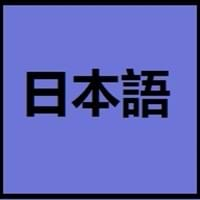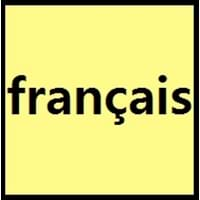Countries
Japan
Belgium, Benin, Burkina Faso, Burundi, Cameroon, Canada, Central African Republic, Chad, Comoros, Congo, Cote d'Ivoire, Djibouti, Equatorial Guinea, France, Gabon, Guernesey, Guinea, Haiti, Italy, Jersey, Luxembourg, Madagascar, Mali, Mauritius, Monaco, Niger, Rwanda, Senegal, Seychelles, Switzerland, Togo, Vanuatu
National Language
Japan
France
Second Language
Not spoken in any of the countries
Africa, Canada
Speaking Continents
Asia, Pacific
Africa, Australia, Europe, North America, Oceania, Pacific, South America
Minority Language
Palau
Brazil, Cambodia, United States of America, Vietnam
Regulated By
Agency for Cultural Affairs (文化庁) at the Ministry of Education
Académie française (French Academy), Office québécois de la langue française
Interesting Facts
- In Japanese Language, there are 4 different ways to address people: kun, chan, san and sama.
- There are many words in Japanese language which end with vowel letter, which determines the structure and rhythm of Japanese.
- French is the only language, with English, that is taught in every country of the world.
- French is the top language in Culinary Scene.
Similar To
Korean Language
Italian Language
Derived From
Not Available
Latin
Alphabets in
Japanese-Alphabets.jpg#200
French-Alphabets.jpg#200
Writing Direction
Left-To-Right, Horizontal, Top-To-Bottom
Left-To-Right, Horizontal
Hello
こんにちは (Kon'nichiwa)
bonjour
Thank You
ありがとう (Arigatō)
Merci
How Are You?
お元気ですか (O genki desu ka?)
Comment allez-vous?
Good Night
おやすみなさい (Oyasuminasai)
bonne Nuit
Good Evening
こんばんは (Konbanwa)
bonsoir
Good Afternoon
こんにちは (Konnichiwa!)
bon Après-Midi
Good Morning
おはよう (Ohayō)
Bonjour
Please
お願いします (Onegaishimasu)
S'il vous plaît
Sorry
ごめんなさい (Gomen'nasai)
désolé
Bye
さようなら (Sayōnara)
au revoir
I Love You
愛しています (Aishiteimasu)
Je t'aime
Excuse Me
すみません (Sumimasen)
Excuse Moi
Dialect 1
Sanuki
Quebec French
Where They Speak
Kagawa
New Brunswick, New England, Ontario, Quebec, Western Canada
Dialect 2
Hakata
African French
Where They Speak
Fukuoka
Africa
Dialect 3
Kansai
Swiss French
Where They Speak
kansai
Northeast France, Switzerland
How Many People Speak
Not Available
Second Language Speakers
Not Available
Alternative Names
Not Available
Français
French Name
japonais
français
German Name
Japanisch
Französisch
Pronunciation
/nihoɴɡo/: [nihõŋɡo], [nihõŋŋo]
[fʁɑ̃sɛ]
Ethnicity
Japanese (Yamato)
Not Available
Language Family
Japonic Family
Indo-European Family
Subgroup
Not Available
Romance
Branch
Not Available
Not Available
Early Forms
Old Japanese, Early Middle Japanese, Late Middle Japanese and Early Modern Japanese
Old French, Middle French and French
Standard Forms
Japanese
Standard French
Signed Forms
Signed Japanese
le Français Signé (Signed French, France)
Scope
Individual
Individual
ISO 639 6
Not Available
fras
Glottocode
nucl1643
stan1290
Linguasphere
45-CAA-a
51-AAA-i
Language Type
Living
Living
Language Linguistic Typology
Subject-Object-Verb
Subject-Verb-Object
Language Morphological Typology
Agglutinative, Synthetic
Fusional, Synthetic
Japanese and French Greetings
People around the world use different languages to interact with each other. Even if we cannot communicate fluently in any language, it will always be beneficial to know about some of the common greetings or phrases from that language. This is where Japanese and French greetings helps you to understand basic phrases in Japanese and French language. Japanese word for "Hello" is こんにちは (Kon'nichiwa) or French word for "Thank You" is Merci. Find more of such common Japanese Greetings and French Greetings. These greetings will help you to be more confident when conversing with natives that speak these languages.
Japanese vs French Difficulty
The Japanese vs French difficulty level basically depends on the number of Japanese Alphabets and French Alphabets. Also the number of vowels and consonants in the language plays an important role in deciding the difficulty level of that language. The important points to be considered when we compare Japanese and French are the origin, speaking countries, language family, different greetings, speaking population of these languages. Want to know in Japanese and French, which language is harder to learn? Time required to learn Japanese is 88 weeks while to learn French time required is 24 weeks.





